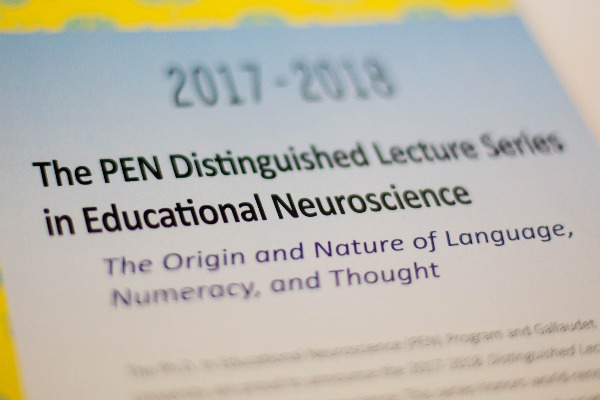PEN Distinguished Lecture Series
The PEN Distinguished Lecture Series in Educational Neuroscience was created in association with the Foundations Proseminar course for graduate students in the Ph.D. in Educational Neuroscience (PEN) program. Since its inception, the series has grown!
The lecture series focuses on the intersection of the Science of Learning (learning across the lifespan) and Educational Neuroscience (learning across early life). Scientists and researchers who are pioneers in the fields of Cognitive-Educational Neuroscience, Developmental Cognitive Neuroscience, and Child Development come to Gallaudet University's campus to talk about their research.
Register for Upcoming Lectures
All lectures are open to the public and are video recorded for online distribution.
PEN DLS brochure for 2024-2025
Teachers’ Perceptions of the Use of ASL Phonological Instruction to Develop ASL and English Literacy in an ASL/English Bilingual Preschool
This study seeks to understand how teachers who work in an ASL/English bilingual educational program for preschool children conceptualize and utilize phonological instruction of American Sign Language (ASL). While instruction that promotes phonological awareness of spoken English is thought to provide educational benefits to young children in terms of language proficiency and reading development, there is limited understanding of how deaf children may similarly benefit from the phonological instruction of ASL. Part of the resistance in promoting ASL may be related to how signs native to ASL do not directly map onto written English in the same way that spoken English does. However, ASL does incorporate the use of the manual alphabet, which is a manual representation of the English alphabet, and many signs in ASL do have partial or full overlap to words in the orthography of English. ASL also has the added benefit of being considered the natural language for deaf people, which allows teachers with the means to promote ASL phonological instruction in ways that allow students to access and utilize a language in ways that can maximize their ability to process information.
